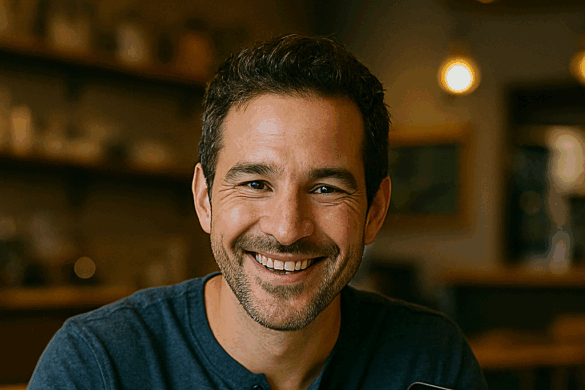Business Owner’s Insurance

The Essential Guide to Business Owner’s Insurance: Protecting Your Business
Starting and growing a business comes with numerous challenges—and an array of risks. From protecting property and employees to managing customer interactions and financial records, business owners must stay vigilant to grow a successful business. Business owner’s insurance (or BOP) helps protect what you’ve built when issues arrive. This article explores what business owner’s insurance entails, its benefits, and why business owners should prioritize it to protect their investments.
What is Business Owner’s Insurance?
A business owner’s insurance policy (BOP) is a package that typically combines three main coverages:
- Property Insurance: Coverage for physical assets, such as buildings, equipment, and inventory.
- General Liability Insurance: Protection against claims related to bodily injury, property damage, and advertising injury.
- Business Interruption Insurance: Compensation for lost income if your business must close temporarily due to a covered event.


Why Business Owner’s Insurance is Essential for Businesses
Whether you’re running a restaurant, a retail store, or an IT consulting firm, having a BOP protects against unexpected financial losses. Here’s why:
- Asset Protection: For businesses with high-value inventory or equipment, a BOP ensures that property losses don’t jeopardize your business operations.
- Liability Coverage: Liability claims are common in customer-facing businesses, where risks of accidental injury or property damage can lead to costly lawsuits.
- Continuity in Emergencies: Business interruption coverage is crucial in areas prone to storms or other disruptions, ensuring you don’t lose income while recovering from damages.
Several Examples of Businesses That Benefit Most from a BOP
1. Retail Stores
Retail stores manage high-value inventory and customer traffic, making them vulnerable to property damage and liability claims. A BOP for retail often includes theft protection for merchandise and liability coverage for customer-related incidents.
2. Restaurants and Cafes
For the food service industry, risks include kitchen fires, food contamination, and customer injuries. Business owner’s insurance for restaurants often includes food spoilage coverage and liability insurance for slip-and-fall accidents or foodborne illness claims.
3. Professional and Technology Services
From accounting firms to IT consultants, professional service providers face unique risks, like data breaches and client disputes. A BOP tailored to professional services may include data breach coverage and professional liability insurance to safeguard against client lawsuits.
4. Health and Wellness Providers
Health and wellness businesses—such as gyms, clinics, and physical therapy centers—carry high liability risks due to the nature of their services. A comprehensive BOP with medical liability or professional liability insurance can protect against lawsuits resulting from accidental injury or malpractice claims.


Key Components of a Business Owner’s Policy
1. Property Insurance :Property insurance covers losses related to business property, including:
- Buildings: Coverage for your owned or rented space.
- Equipment and Machinery: Coverage for equipment and specialized machinery.
- Inventory: Protection for goods and materials stored on-site.
In Delaware, where seasonal weather can affect business, property insurance can safeguard against damage from storms, flooding, or theft.
2. General Liability Insurance: Liability insurance protects businesses from third-party claims, including:
- Bodily Injury Claims: If a customer is injured on your property.
- Property Damage Claims: If your business causes damage to someone else’s property.
- Advertising Injury: Coverage for claims related to defamation, copyright infringement, or advertising injury.
Liability insurance is especially important for customer-centric businesses like retail and food services, where interactions with the public are frequent.
3. Business Interruption Insurance: This coverage compensates for lost income during unforeseen interruptions. For example, if a storm damages your retail store and you must close for repairs, business interruption insurance can cover lost revenue, employee wages, and rent until you can reopen.
Additional Coverages to Consider
- Cyber Liability Insurance:
For businesses handling customer data, cyber liability coverage protects against costs associated with data breaches and cyberattacks.
- Equipment Breakdown Insurance:
Covers repair or replacement costs for critical equipment, especially valuable for manufacturing or high-tech industries.
- Commercial Auto Insurance:
Protects business-owned vehicles and provides liability coverage for accidents involving employees driving for work purposes.


How Business Owner’s Insurance Works for Different Industries
Example 1: Retail Store in Wilmington
Imagine a small boutique in Wilmington experiencing a robbery. With property insurance as part of its BOP, the boutique owner can file a claim to cover the cost of stolen inventory and any damage to the premises. If a customer slips in the store and files a claim for medical expenses, liability insurance will cover those costs.
Example 2: IT Consulting Firm in Dover
A Delaware IT firm faces a cyberattack, resulting in compromised client data. Cyber liability insurance covers the costs of notifying clients, restoring data, and addressing any resulting legal claims, protecting the firm from financial and reputational loss.
Example 3: Family-Owned Restaurant in Rehoboth Beach
A sudden power outage spoils perishable food, resulting in a significant financial setback. With business interruption insurance, the restaurant owner receives compensation to cover lost revenue and food spoilage, helping them recover quickly without major loss.
Step-by-Step Guide to Choosing the Right BOP for Your Business
- Assess Your Business Risks Start by analyzing the specific risks in your industry. Retail stores may prioritize theft and liability coverage, while professional services need data breach and professional liability protection.
- Consult a Local Insurance Expert A to Z Insurance specializes in understanding Delaware’s unique business environment. Consulting with our agents ensures you get tailored advice on what coverage fits your business.
- Customize Coverage Based on Industry Needs After assessing risks, customize your BOP. If you’re in an industry with significant walk-in customers, like food service or retail, you might need enhanced property and liability coverage, while tech firms have different risks and need more significant cyber liability coverage.
- Review Policy Terms and Limits Pay attention to coverage limits and exclusions. Ensuring adequate coverage limits for high-risk assets is essential for protecting your business in worst-case scenarios.

Conclusion
A business owner’s policy offers invaluable protection for small to medium-sized businesses. By bundling key coverages like property, liability, and business interruption insurance, a BOP ensures that unexpected events don’t jeopardize your business’s future. At A to Z Insurance, we’re committed to helping businesses find the right protection. Contact us today to secure your business’s future and experience the peace of mind that comes with complete coverage. You can also check out our article covering How to Choose The Right Business Insurance for Small Businesses for more information.
Frequently Asked Questions (FAQs) about BOP
Even if you lease, a BOP can cover your contents and liability, thus, ensuring your inventory, equipment, and liability risks are protected.
Costs vary based on business size, location, and industry. For a small business, BOPs can be a cost-effective way to secure multiple coverages in one policy.
Yes, a BOP is customizable. As your business grows, you can add coverages, like cyber insurance or equipment breakdown insurance, based on evolving needs.
Yes. Commercial auto insurance is a separate policy and essential if you use vehicles for business operations.

What We Offer at
A to Z Insurance
Auto Insurance
Auto insurance doesn’t have to be complicated. Our experienced agents help you find the best coverage for your needs.
Home Insurance
Protect your largest asset with a customized homeowners policy tailored to your needs. Our agents guide you through your options to find the right coverage for your home.
Business Insurance
Your business deserves protection that fits its unique needs. We offer expertise and a wide range of coverage options to help safeguard your business.
